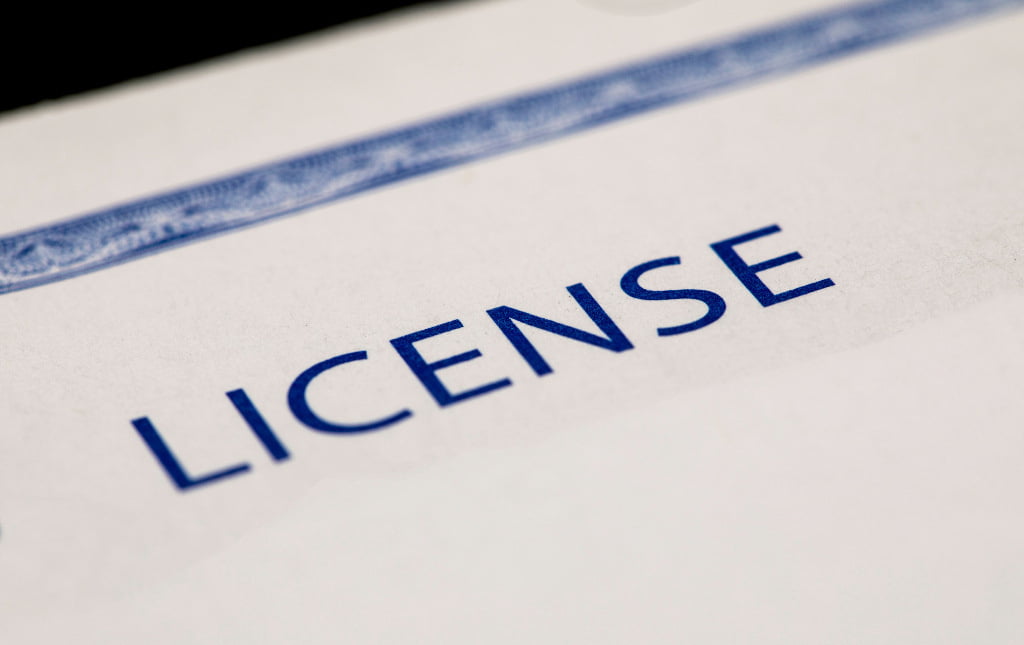Business Licensing in Japan
Are you an entrepreneur or business leader considering entering the dynamic Japanese market? Japan’s booming economy, valued at over US$4.2 trillion, draws in numerous ambitious entrepreneurs with its flourishing business environment. However, when obstacles such as obtaining the necessary business licenses arise, the process of establishing the business can often seem complex and potentially overwhelming.
Whether you’re a sole proprietor, a large corporation, or a consultant advising clients, understanding company setup and Japanese business registration is essential. This guide will help you to navigate the business licensing process in Japan so that you can avoid costly delays and setbacks, and confidently launch your business here.

Steps to Applying for a Business License in Japan
There are various types of business licenses (営業許可 – eigyō kyoka) in Japan which will depend upon the industry your organization is in.
Let’s look at the restaurant business permit (飲食店営業許可 – inshokuten eigyō kyoka) as an example and break down the process of obtaining this license into 6 steps:
1. Consult with the Public Health Center
The first thing you should do is bring your construction plan to the Public Health Centre (保健所 – hokenjo) for approval. Keep in mind that your initial design might have to undergo some changes, so it’s best to consult early on, as changing the design after construction has begun is difficult and will require time and additional costs.
2. Appoint a food sanitation manager
Make sure to appoint a person who’ll be in charge of food hygiene prior to your business license application. A food sanitation manager must either have qualifications specified by law (such as nutritionist, chef, confectionary hygiene, etc.) or take a Food Sanitation Supervisor Course. There are two options available:
- At-venue training seminars, which take about 6 hours and are completed in a day (JP¥12,000 – cash only).
- E-learning training course, which takes about 6 hours and can be completed within 30 days of registration (JP¥12,000 – online card payment).
In order to complete either one of them, you have to be able to read, write, and speak Japanese. Visit the Food Sanitation Association website for further information and registration.
3. Notification of usage of fire-prevention equipment
If your restaurant accommodates more than 30 people, you’ll be required to notify your local fire department about the commencement of fire-prevention equipment use. In order to do that, you’ll need to:
- Appoint a fire prevention manager who will pass a one to two-day Fire and Disaster Protection Manager’s Course, depending on your facility’s size
- Report the appointed fire prevention manager to the local fire department a week before the restaurant’s opening with the training certificate attached
- Submit the fire prevention plan, with a copy for the business to keep
4. Submit a business license application
Once your construction plan has been approved and you have a designated food sanitation manager, you can begin your business license application. To avoid unnecessary delays, it’s advised to submit the documents to a Public Health Center about 10 days before the completion of your facility’s construction. This includes:
- Business License Application Form
- The facility layout with equipment
- Water quality inspection report (水質検査成績書 – suishitsu kensa seiseki-sho)
- Proof of food sanitation manager qualification
- Certified copy of commercial register (for corporation applicants)
Depending on the local authority, the handling fee can vary from JP¥15,000 to JP¥20,000, and the business license is usually processed within two weeks. Consider using professional services like Launch Lab to help you gather all the necessary documents and handle business license submissions.
5. Undergo facility inspection by the Public Health Center
After accepting your business license application, a Health Center official will inspect your establishment once the construction is finished to make sure it has the necessary equipment to open a restaurant. Some of the inspection points include:
- Ventilation and pollution prevention
- Dedicated toilet area
- Handwashing equipment
- Cleaning equipment
- Drainage and washing equipment
- Refrigerator and freezer equipment
- Installation of trash cans with lids in the kitchen
- Installation of water heater
- Separation of kitchen and dining areas
6. Get your business license
Once the inspection is complete and there are no further inquiries, a business permit will be issued. Note that your business may require additional licenses to operate, for example, for selling raw fish or baking. If you’re interested in learning more about the restaurant business in Japan, this podcast with Willian Ryan is the right place to start!
Depending on the industry of your business, there will be different business license application steps. It’s also possible that you may not need a license at all, so make sure to double-check the requirements online or use professional services to kick-start your business.

Keeping your Japanese business compliant
Business license validity
In general, most business licenses are valid for 5-8 years, but the exact period will depend on your business type. Make sure to file for renewal before your permit expires–the process largely follows the same procedures as applying for a new permit.
How can business changes impact the licensing requirements?
Significant business changes can impact your licensing requirements, and navigating these updates smoothly is crucial for continued operation. Here’s what you need to know:
Mergers and Acquisitions
Depending on the business structure and industry, merging with or acquiring another company could result in the need for a new license application. Both entities’ licenses might need to be combined and replaced with a single license reflecting the combined entity.
Change in Ownership
A change in ownership structure, such as a significant shift in controlling shareholder percentage, might trigger a review of your existing license. In some cases, you’ll have to submit a new business licensing application to reflect the revised ownership information.
Change in Company’s Structure
If you change your legal structure from a sole proprietorship to a corporation (KK) or limited liability company (GK), you will need to submit a new license application, as each structure has different licensing requirements.
Rebranding
While rebranding typically doesn’t directly impact licensing, it could involve changes to your registered trade name. If so, you’ll need to update your license to reflect the new name and potentially file an amendment with the relevant authorities. For example, the revised version of the Food Sanitation Act allows the changing of the name of the business operator without applying for a new business license, given that the local Health Center has been notified about the business transfer.

What are the risks of not having an appropriate business license?
Business operations without an appropriate license can result in a business suspension or criminal penalties. Specific penalties and fines will vary depending on the business and case.
For example, starting a business in Japan without a license is subject to severe penalties of up to six months in prison or a fine of up to JP¥1 million, or both. Operating a restaurant business without a license is subject to imprisonment of up to two years or a fine of up to JP¥2 million. Therefore, it’s very important to obtain all the necessary licenses and permits before starting a business operation to eliminate any risks.
Resources and support
Don’t worry if you feel stuck–there are a lot of organizations that provide online resources and support for business start-ups in Japan. Some of the government websites include:
- Ministry of Economy, Trade and Industry (METI)
- Japan External Trade Organization (JETRO)
- The Small and Medium Enterprise Agency (SMEA)
In addition, each prefecture in Japan has its own website, which typically includes information on business registration and licensing specific to that region. Make sure to look for the website of the prefecture where you plan to operate your business.
Final Thoughts
Understanding what licensing is needed for your business in Japan is crucial for a smooth launch. Although there are many useful online resources, remember that some information may only be available in Japanese. If you require assistance navigating the licensing process, consider hiring a translator or consult an advisor with expertise in Japanese business regulations.



